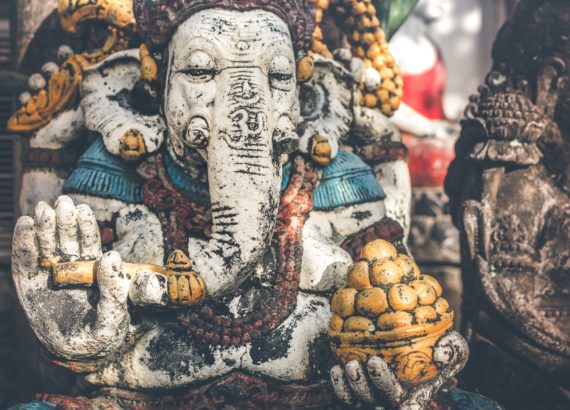Website translation into Chinese
Translating a website into Chinese can be tricky, as there are so many cultural differences between the Chinese and people of other nations, not to mention the complicated Chinese Internet rules – and sometimes lack of them! A successful website translation will not only attract more visits but also help you build your brand image in this potentially immensely lucrative market. When translating your website into Chinese, you may need to consider the following important tips.
1. Should I change the design of my website?
Chinese websites used to add many elements into one page in order to include as much content as they can. Now, however, they tend to choose a simpler design more in line with that of Western websites. Nevertheless, they will also highlight the main content in different ways, including using bigger banners, or brighter or darker colours. Photo: sina.com.cn.
Chinese website design
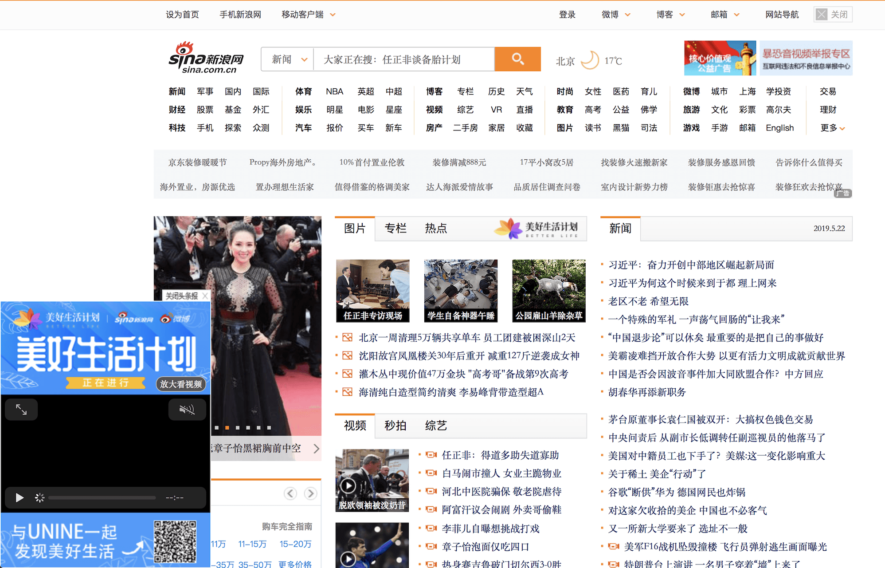
When translating a website into Chinese, some of the elements need to be changed. The first one is the font. Mandarin is a very ornate and elegant written language, and many advertisers play to this strength. The text should be reader-friendly, clear, and aesthetically pleasing in Chinese, and Mandarin has many fonts to choose from, some of which can be found here: https://cooltext.com/Fonts-Unicode-Chinese. The most popular fonts in Chinese websites are Song Ti, Microsoft Yahei, and their variants, while Apple China uses their own PingFang Simplified Chinese font. Interesting reading about Chinese fonts may be found from Hynuza article on medium.com.
Chinese matches for the most popular Latin fonts
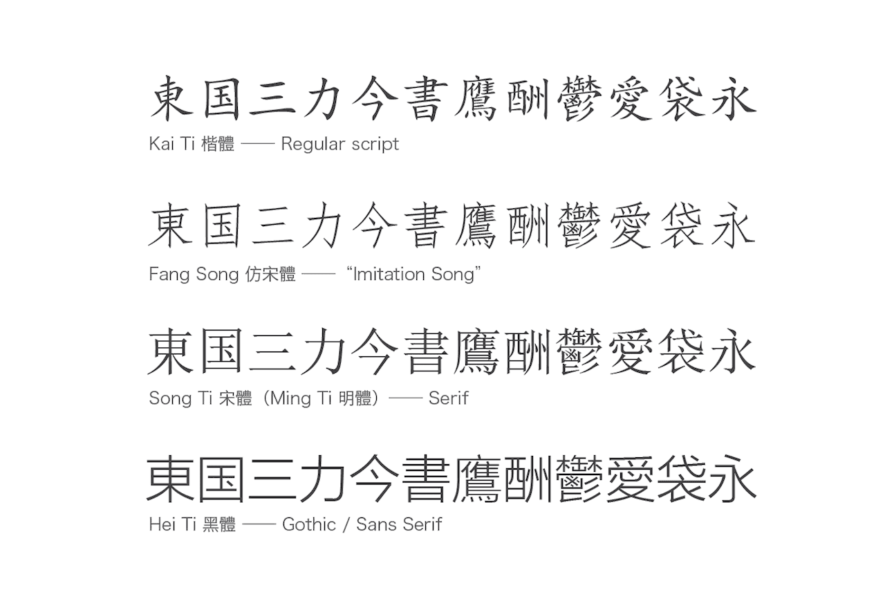
The second aspect to consider is the colour. Many Chinese prefer simple and pure colours. For example, the use of black or white as your website’s main colour is always a safe bet, although experimenting with bold, bright colours may also pay dividends depending on your potential customer base. While red and gold are traditionally auspicious colours in China, they have become somewhat passé of late, aside from that, the same standards as the West generally apply – just be sure to choose a colour scheme that’s appropriate to your content.
The third one is the photos. You may need to replace the original ones for Chinese audience tastes, although this is not strictly necessary, and, unless your photographs have a context that’s entirely suited to a particular region, a generic international approach might be considered aspirational. Of course, China is still a repressive country in many ways, so you’ll have to avoid the censors.
While no definitive list exists, and it’s both subject to change and inconsistently applied, some commonly censored material includes:
- references to death, nudity, overt sexual references,
- the ‘promotion’ of homosexuality and alternative lifestyles, democracy and freedom of speech,
- the ‘promotion’ of religion,
- drug use,
- criticism of communism and communist leaders,
- and, most importantly, criticism of the Chinese Communist Party itself.
Basically, if you’re not sure if it will cause offence, don’t include it.
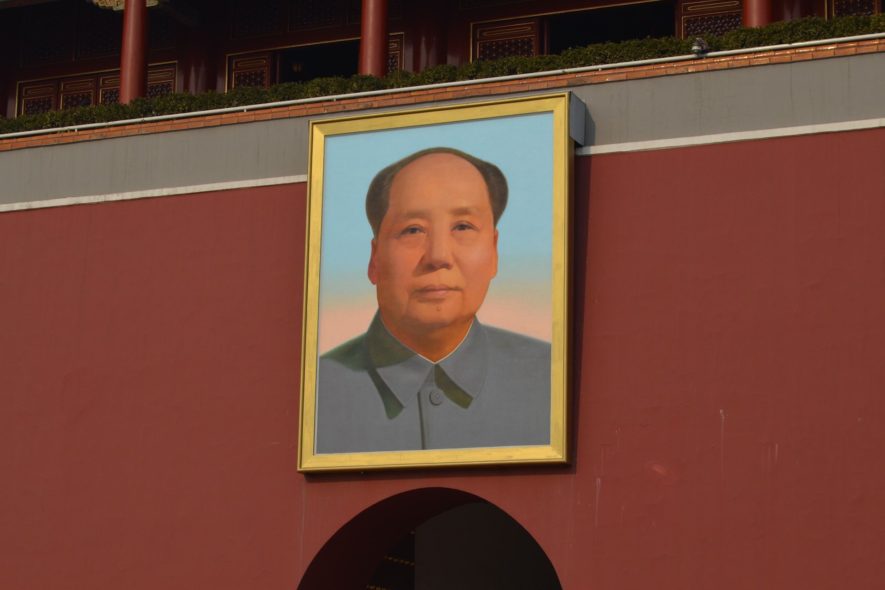
However, most of the time, the font is the only thing that needs to be changed. Take Apple for example, they barely change their website design except for the font of the Chinese characters. One more important thing to consider is that most Chinese are heavy smartphone users, and this is the primary way the Internet is accessed in China, so it is essential to design a mobile-friendly website. Apple China’s website for mobile phones: Simple, Pure, Mobile-friendly. Photo: apple.com/cn
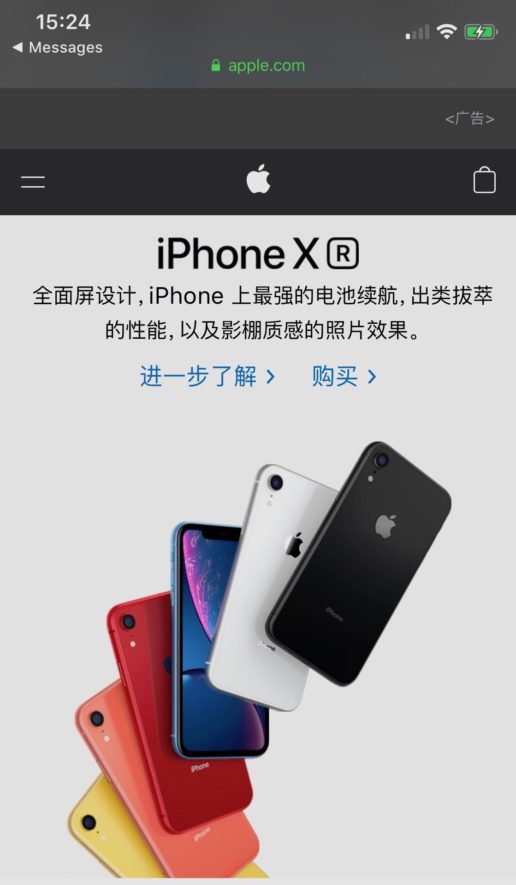
2. Do I have to host my website on a Chinese hosting provider?
A Chinese hosting provider is not essential but it might be a plus to your localisation. COM is the most commonly used domain, and, as Chinese users are not generally familiar with the EU domain suffix, it’s best to use COM instead of EU. Apple China uses https://www.apple.com/cn/.
However, some websites like medium.com are blocked in China, and users can only visit them by using a VPN(Virtual Private Network) – which are relatively easy to download in China from multiple sources, though occasionally blocked by the Chinese government as a show of force on important state occasions such as elections. However, if you choose a Chinese hosting provider, you can guarantee your site won’t be blocked and the network speed will be better. Tencent Cloud, Alibaba Cloud and CNDNS are some examples of good Chinese hosting providers.
3. Which are the most popular and fastest content management platforms I should use?
There are many Chinese platforms for website design, such as http://www.coolsite360.com/, and https://www.kuaizhan.com/.They both have free guides for the design and there is no need for any complex programming, simply design or buy the templates online. By using a Chinese platform, it will save you time and confusion on the design.
Tencent Cloud and Alibaba Cloud also provide such a service, though obviously for a fee. Besides these WordPress can be used for blogging and e-commerce websites. It is more popular than Magento, while Magento is mainly used for e-commerce, whose users are those looking to sell products online.
4. What is the best way to approach SEO in China?
Google has been blocked in mainland China since 2010, and only users with a VPN (i.e. every Westerner in China) can access it. The fact is that most Chinese are no more familiar with Google than Western users would be with Chinese search engines such as Baidu. Bing, Qihoo360 and Sogou are also popular now as Baidu’s brand image has been damaged in recent yearsby some embarrassing scandals. However, Baidu is still the best option if you want to conduct SEO in China because it is still the biggest search engine in the country by far.
Baijiahao

Besides these WordPress can be used for blogging and e-commerce websites. It is more popular than Magento, while Magento is mainly used for e-commerce, whose users are those looking to sell products online.
If you want to ensure a comprehensive level of good-quality links, you may need to use Baidu’s new product – Baijiahao. Baidu tends to lead most of its traffic to this platform. If you post your articles in this Baijiahao platform, it will ensure better exposure in Baidu.com.
5. What are the most important Internet marketing channels in China?
For general marketing, Baidu, Weibo, WeChat and Toutiao are the most important Internet marketing channels. Baidu Ads paid listing allows you to generate a high degree of exposure on its websites as long as – guess what? – you’ve paid more than your competitors. For Weibo, WeChat and Toutiao, you may find a KOL(Key Opinion Leader), i.e. someone using these platforms with a ‘VIP’ account, to help you market your products. Young Chinese, like those in the West, are highly influenced by the famous people they follow on social media, and an endorsement by a fashionable celebrity or a cool young business icon can often have a remarkable effect on your sales.
Most Chinese companies have social media accountslike Weibo, WeChat, Toutiao, or Tiktok. As is the case elsewhere, they use these accounts to engage with their communities directly. Given the high levels of social media use and the fact that some of the most popular pages can have literally hundreds of millions of followers, this is a very good approach to manage their customer base and to foster customer loyalty.
6. What should I consider when looking for translation?
For translation, you may need to change the tone of the texts. Most customers love a polite tone. If your website is an ecommerce site, a courteous, formal tone is necessary. However, if you want to keep the audience close to you, a more contemporary and friendly tone may be better because they will feel there is no distance between you – especially when marketing to younger Chinese born into the huge cultural changes that have taken place there in the last few decades. Apple China, primarily appealing to a young, affluent demographic, chooses the second tone.
Translating your website into Chinese and adapting other marketing materials to the context of another language and culture, has become a trend for Chinese translation, especially for socially conscious Internet or technology companies – notably Apple China. It is quite tricky to define transcreation because different companies have different requirements, but a suitably qualified translation agency knows how to deal with it.
6. What are the biggest taboos when translating a website into Chinese?
Never mess with China’s map –when you have to make a country/city list in your website, keep in mind that Taiwan, Hong Kong, and Macau should be considered to form part of China rather than separate entities. Moreover, western areas like Tibet should be included in the map of China. Otherwise the Chinese will assume some form of political point is being made, and this will attract unwanted animosity. The Marriott Hotel made such a mistake and had to take the consequences. Photo: https://asia.nikkei.com/, © AP
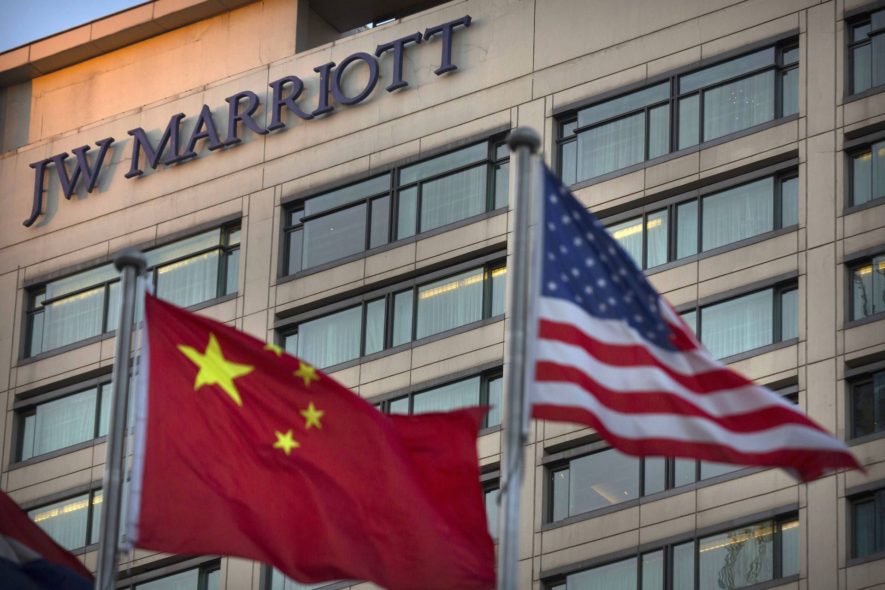
In addition, never post any messages or videos that insult the Chinese people, culture or tradition in the websites, or anywhere public – again, the watchword is, if you’re unsure of the spirit in which it will be taken, it’s probably best not to include it in the first place. Dolce & Gabbana made a mistake of historic proportions by an awkward skit based on the inaccurate idea that the Chinese are unfamiliar with pizza, and it lost them the entire Chinese market.
The Chinese are both extremely Internet-savvy and have increasing confidence in themselves in terms of both consumer power and as a distinct ethnic group, and failure to show them the correct ‘face’ can be disastrous to any business wishing to market to them. For example, when the duty-free chain World Duty Free was accused of applying vastly higher special offer terms to Chinese tourists, the blog making the claim was viewed 10 million times in a few days, causing the chain to rapidly issue a grovelling apology.
The younger population in China knows all about Western culture
Also, bear in mind (unlike D&G) that young Chinese audiences are fairly familiar with Western culture, and it is probably better to engage them in this way than attempt to pitch ideas appealing to antiquated Chinese clichés such as martial arts, dragons, wise old masters, etc., as the commercial and artistic flop that was The Great Wall proved amply.
On a linguistic note, the pronunciation of 4 in Mandarin sounds like “death” – a huge taboo in China – so many people don’t like to use the number 4. And the more 4’s, the worse things get. Therefore, try to avoid “44”, “444”, etc. In fact, it may, if possible, be best to avoid 4 in your numbers entirely. Instead, you can opt for 520, which, if spoken out loud, sounds very close to “I love you” in Chinese; and 999, which can be taken to mean “(love) for a very long time”. That’s why Dior’s 520 and 999 lipsticks are so popular in China. In addition, Chinese also love the number 8, which sounds like the word for to “be rich” in Chinese. You may therefore consider naming a product 888 to attract Chinese customers, although plenty of people will have got there before you! Here are some other examples of Chinese numerology.
8. Some other things to bear in mind
The most popular Western brands such as IKEA, Nike and (though less so of late) Apple, bring with them a certain cachet; they are synonymous with quality, and given China’s protectionist trade tariffs, frequently more expensive – despite generally being manufactured in China in the first place! Despite the increasing success of higher-end Chinese products such as Huawei and Lenovo, there is still a widespread belief, even in China, that Chinese products cater to the lower end of the market. Therefore, it is a) important to market your product on aspirational rather than economic grounds, and b) important to remember that you’ll anyway struggle to beat lower-end Chinese products in terms of price. Photo: https://news.cgtn.com/
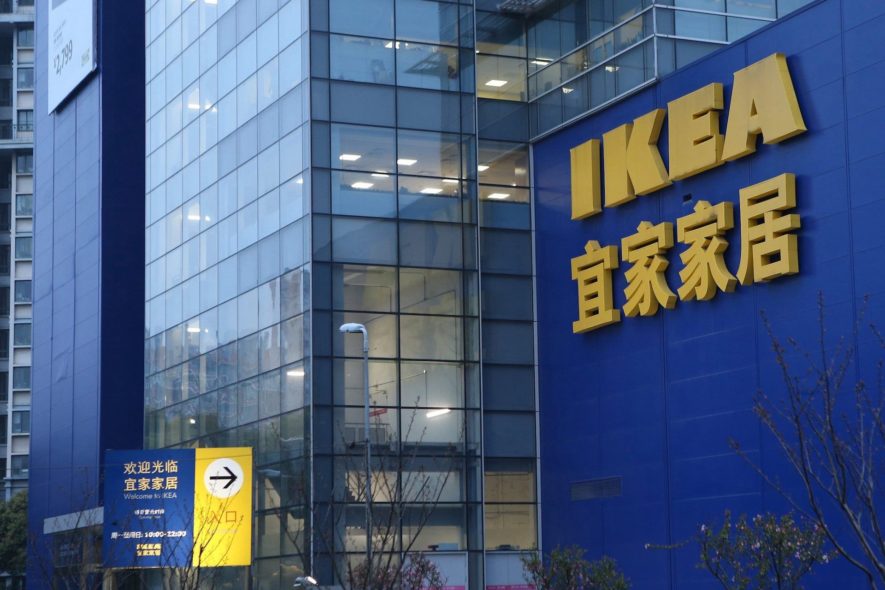
Some hugely popular apps in China right now are:
WeChat: A near-ubiquitous social media platform that has replaced QQ as the primary form of online interaction between the Chinese. With Facebook and Twitter banned, and WeChat anyway being (to be honest) more sophisticated than either, WeChat’s domination of the world’s biggest consumer market is complete. Tiktok: Combining elements of YouTube and Snapchat, this app, popular with the young demographic, allows people to upload and share short videos. Weibo: Similar to Twitter in its popularity with people in the public eye, it is also notorious in China for providing news and celebrity gossip that may be unavailable in more traditional offline channels.
Kuaishou: Another photo- and video-sharing app, which also often shows a side of China unavailable in the state-run media. Alibaba: Vast, sprawling Chinese version of Amazon, owned by the charismatic billionaire Jake Ma – an obvious starting point for companies wishing to do business in China. Alipay: An online (and increasingly offline) payment platform similar to PayPal, though as yet without PayPal’s global reach. Finally, blockchain and cryptocurrencies have recently become a hot topic in China. However, the last few years have seen an increasing attempt in China – along with the world more generally –to control this frequently unregulated and largely anonymous new form of currency. Increasing state control of this industry has led many Chinese crypto companies to move their companies overseas.
Check out these other posts from our blog
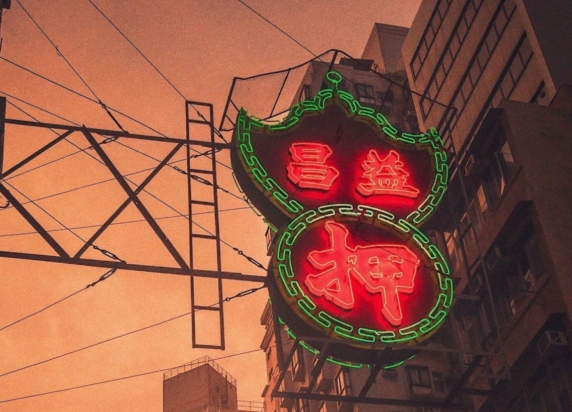
Chinglish ehk Hiina inglise keel

What makes a great website translation?
